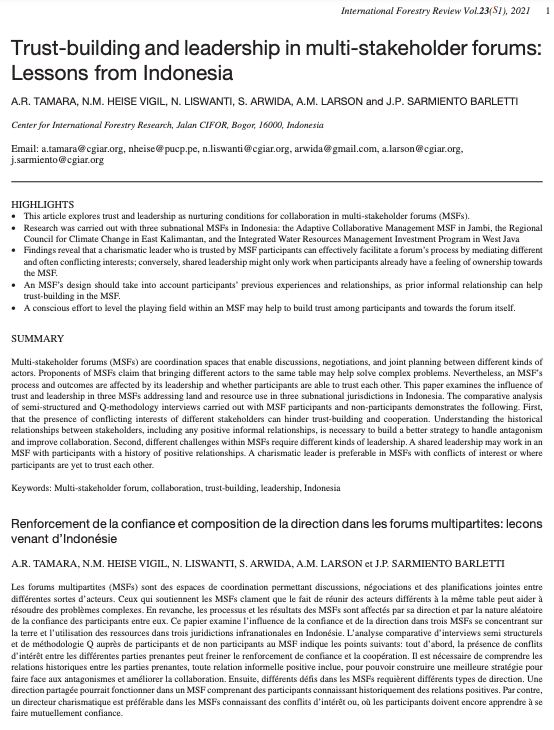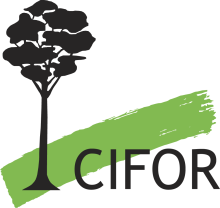Resource information
HIGHLIGHTS
- This article explores trust and leadership as nurturing conditions for collaboration in multi-stakeholder forums (MSFs).
- Research was carried out with three subnational MSFs in Indonesia: the Adaptive Collaborative Management MSF in Jambi, the Regional Council for Climate Change in East Kalimantan, and the Integrated Water Resources Management Investment Program in West Java
- Findings reveal that a charismatic leader who is trusted by MSF participants can effectively facilitate a forum’s process by mediating different and often conflicting interests; conversely, shared leadership might only work when participants already have a feeling of ownership towards the MSF.
- An MSF’s design should take into account participants’ previous experiences and relationships, as prior informal relationship can help trust-building in the MSF.
- A conscious effort to level the playing field within an MSF may help to build trust among participants and towards the forum itself.
SUMMARY
Multi-stakeholder forums (MSFs) are coordination spaces that enable discussions, negotiations, and joint planning between different kinds of actors. Proponents of MSFs claim that bringing different actors to the same table may help solve complex problems. Nevertheless, an MSF’s process and outcomes are affected by its leadership and whether participants are able to trust each other. This paper examines the influence of trust and leadership in three MSFs addressing land and resource use in three subnational jurisdictions in Indonesia. The comparative analysis of semi-structured and Q-methodology interviews carried out with MSF participants and non-participants demonstrates the following. First, that the presence of conflicting interests of different stakeholders can hinder trust-building and cooperation. Understanding the historical relationships between stakeholders, including any positive informal relationships, is necessary to build a better strategy to handle antagonism and improve collaboration. Second, different challenges within MSFs require different kinds of leadership. A shared leadership may work in an MSF with participants with a history of positive relationships. A charismatic leader is preferable in MSFs with conflicts of interest or where participants are yet to trust each other.
Keywords: Multi-stakeholder forum, collaboration, trust-building, leadership, Indonesia


